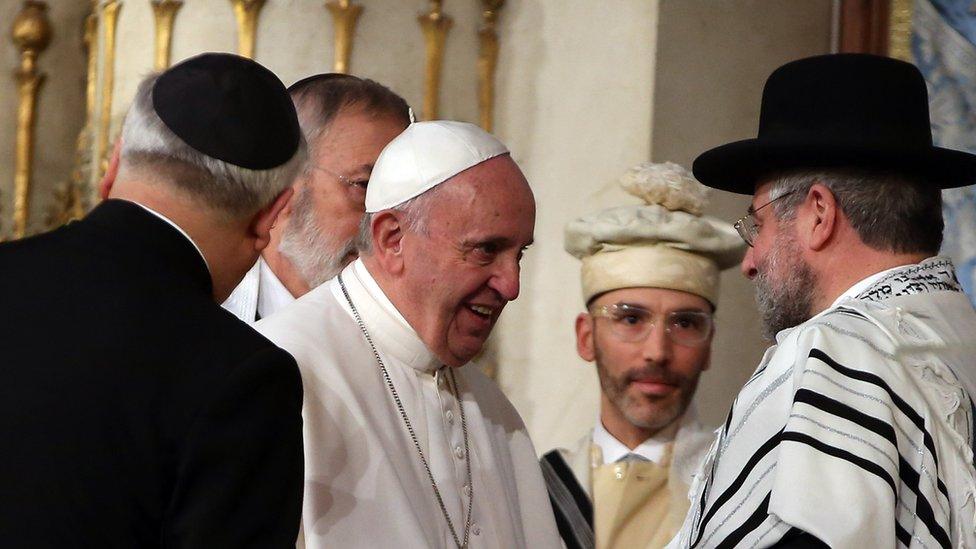Vatican broadcasts Lent messages on Telegram
- Published

The Pope made his first broadcast on Telegram on Ash Wednesday
The Vatican is using controversial messaging app Telegram to promote Lent.
It said the Pope and other clergy would use the app to broadcast recordings of Gospel readings and commentary during the Christian festival.
It also said it had ditched WhatsApp, the platform it used last year, saying Telegram was "better", external.
Telegram lets users send highly encrypted messages but has gained notoriety for its use by so-called Islamic State.
'Several thousand users'
According to the Vatican, subscribers to the Telegram channel @pgpompei will receive the religious messages from Ash Wednesday until Easter.
According to Telegram, the channel had over 5,600 subscribers on Thursday. The Vatican was closed so unable to comment on the campaign's progress, but Telegram told the BBC it welcomed the news.
Telegram was set up by the two brothers who founded VKontakte - a Russian social networking site inspired by Facebook - and claimed in December to have 50 million monthly users.
The free app allows users to send strongly encrypted messages to phones, tablets and computers, without detection by outsiders.
Users can also create groups for up to 1,000 people, or channels for broadcasting to unlimited audiences. The BBC itself has a number of channels on the platform.

IS used Telegram to announce a terror attack in Aden in October 2015
Attracted controversy
However, Telegram attracted controversy last year when the so-called Islamic State group (IS) said it had shifted its propaganda distribution to the app from Twitter, where its accounts had been repeatedly shut down.
Officials investigating last year's Paris attacks also found that some of the attackers had used Telegram, and its rival WhatsApp, to plot and communicate.
Following criticism, Telegram's founders said they had blocked 78 public channels of ISIS propaganda, external In November.
In his first broadcast using the app, Pope Francis reflected on the Gospel reading from the Ash Wednesday Mass - in which Jesus warns against practising good works so others may see them.
"When we do something good, sometimes we are tempted to seek praise and to be rewarded: that's human glory," he said.
"But it's a false reward because it makes us focus on what others think of us."
- Published19 November 2015

- Published17 November 2015

- Published7 October 2015
